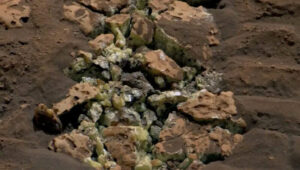It’s not quite interstellar travel, but it would be the closest most of us will ever get.
Last week, NASA published a far-out classified ad for personnel for its simulated Martian habitat. Applicants will vie to participate in the agency’s “simulated one-year Mars surface mission,” it said in a press release.
The objective: to help inform NASA’s plans for human exploration of the Red Planet.
“As NASA works to establish a long-term presence for scientific discovery and exploration on the Moon through the Artemis campaign, CHAPEA (Crew Health and Performance Exploration Analog) missions provide important scientific data to validate systems and develop solutions for future missions to the Red Planet,” the agency wrote.
This CHAPEA mission is the second of a planned three. The first crew is halfway through its mission now. The second will start in the spring of 2025.
‘The right stuff’: crew requirements
The crew will live and work in Mars Dune Alpha, a 1,700-square-foot, 3D-printed “habitat” at the Johnson Space Center in Houston.
Crew tasks include simulated spacewalks, robotic operations, habitat maintenance, exercise, and crop growth. More demanding job responsibilities focus on troubleshooting. The crew will negotiate resource limitations, equipment failures, communication delays, and other environmental stressors at Mars Dune Alpha.
To make the cut, you’ll need some impressive stats. NASA is only “looking for” 30-55-year-old healthy U.S. citizens or permanent residents who are non-smokers. However, the agency will also apply the same criteria to CHAPEA applicants as astronauts.
You need (per NASA):
- A master’s degree in a STEM field such as engineering, mathematics, or biological, physical or computer science from an accredited institution with at least two years of professional STEM experience
Or
- a minimum of one thousand hours piloting an aircraft.
Or
- Two years of work toward a doctoral program in science, technology, engineering, and mathematics, completed a medical degree, or a test pilot program. (These applicants “may” be considered.)
Or
- Military officer training or a bachelor of science degree in a STEM field with four years of professional experience. (These applicants “may” be considered.)
Think you’ve got what it takes? Go for it, cadet. Applications are due April 2, 2024.






